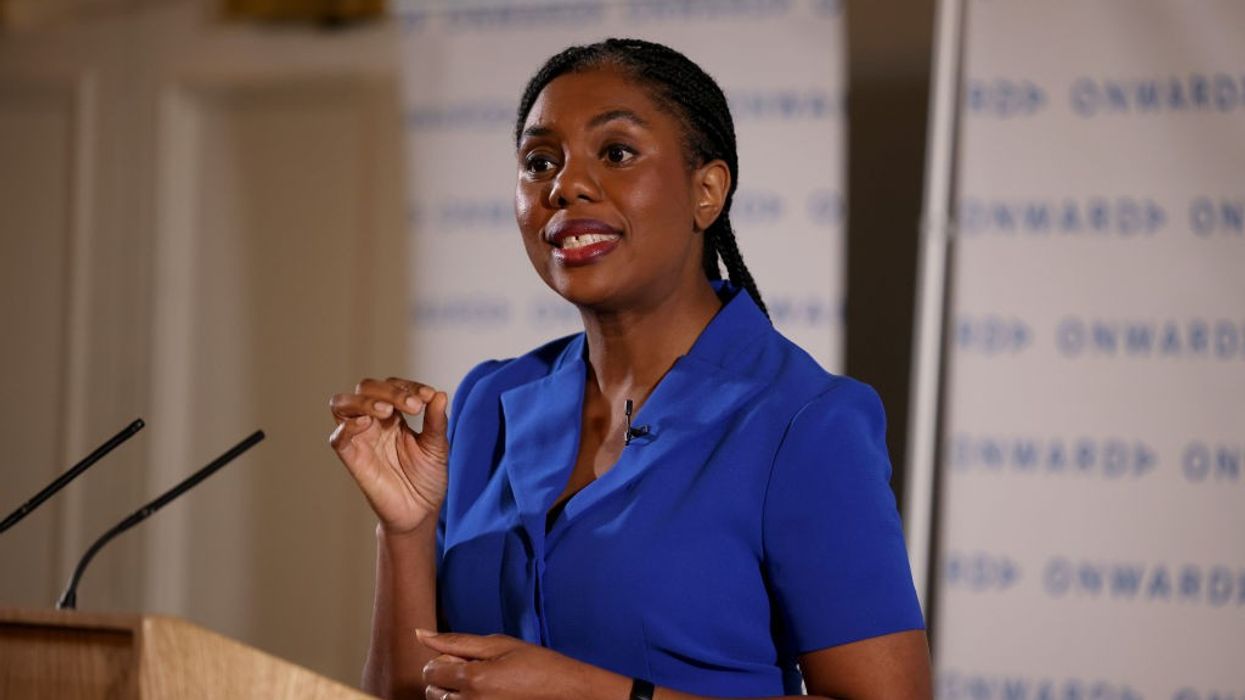CONSERVATIVE PARTY on Thursday (6) proposed a clampdown on all migrants by tightening citizenship rules and barring social benefit claimants from residency rights.
Kemi Badenoch, who took over from Rishi Sunak in November last year, outlined her first major policy agenda as Tory leader in a move seen as an attempt to win back the support of Conservative voters drawn to the far-right anti-immigrant Reform party.
Under her proposals, jobless and low-paid foreign workers would be barred from claiming permanent residency in the UK, leaving the door open for them to be returned to their countries of origin.
“Our country is not a dormitory, it's our home. The right to citizenship and permanent residency should only go to those who have demonstrated a real commitment to the UK,” said Badenoch.
“The Conservative party is under new leadership. We're going to tell the hard truths about immigration. The pace of immigration has been too quick and the numbers coming too high for meaningful integration.
"We need to slow down the track for citizenship. A UK passport should be a privilege, not an automatic right."
Under current rules, foreigners – including Indians – must have lived in the UK for five years before qualifying to apply for Indefinite Leave to Remain (ILR), following which they are entitled to apply for British citizenship and passport 12 months later.
Under any future Badenoch-led Tory government, the qualifying period for ILR would be doubled to 10 years. The party would also tie any ILR application with those not having claimed any social benefits or used social housing during the entire 10-year period.
They would have to demonstrate that their household would be a “net contributor” to the economy, which would impose a higher earnings threshold, and anyone with a criminal record would be blocked out of the process altogether.
It comes as immigration continues to dominate the UK government agenda, with net migration hitting an all-time high of 906,000 in 2023.
“Far from reducing the number of people coming into Britain, the Labour government is presiding over an incoming disaster. The Border Security Bill will actually make it easier for illegal immigrants to stay in the UK, let alone legal migrants. No one can trust Labour on immigration,” said Badenoch, in a move to draw a clear dividing line between the two main parties on immigration.
Last week, the Tory chief clashed with her own shadow foreign secretary Priti Patel, who was home secretary over the period of soaring migration between 2019 and 2022 and tried to defend the previous Tory government's record.
The British Indian shadow minister said it was “totally distortionary” to suggest the former government in which she was in the Cabinet had thrown open the country's borders.
After Badenoch indicated that it was important the Tories “tell the truth about the mistakes we made”, Patel later noted: “Our party is now under new leadership and it is important we learn from our mistakes and how we can do things better.”
On Wednesday (5), a YouGov poll showed that 56 per cent of the British public felt Labour's immigration policy was “not strict enough”, compared with 21 per cent who said it was about right or too strict. However, the ruling party hit back at the Opposition for leaving behind these statistics.
“The Tories completely lost control of our borders in the 14 years they had in government,” said Angela Eagle, Labour's border security minister. “Many of the things they are saying already exist or are the reversal of policies they introduced themselves in recent years – a sign of how chaotic they are. They had 14 years to get a grip of the system and instead they created chaos which Labour is now clearing up,” she said.
Prime minister Keir Starmer has pledged to bring net migration down over the course of the Parliament and the government is due to publish a white paper within the next few weeks to introduce new requirements for employers to train and recruit domestic workers as part of plans to reduce net migration.
(PTI)





